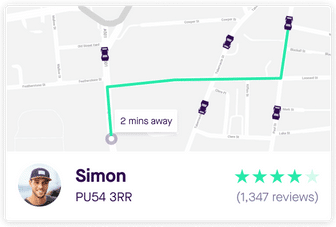
Cloud interactions business MessageBird has really gotten Pusher in an offer worth $35 million. Pusher makes it possible for designers to include real-time performances into their software application, including push notices and in-app messaging.
As more service shift to the cloud to increase their digital operations in 2020 and beyond, need for APIs will continue to grow In the previous 7 months alone, API improvement platform Postman raised $150 million at a $2 billion valuation, API market RapidAPI secured $25 million, and Skyflow locked down $17.5 million to bring its info individual privacy API to more organizations.
MessageBirds acquisition comes 2 months after it revealed a fresh $200 million in funding, valuing the Netherlands-based business at $3 billion, and strengthens its platform ahead of a ready IPO in 2021.
Omnichannel
Established out of Amsterdam in 2011, MessageBird was entirely bootstrapped (and effective) prior to its first considerable round of financing in 2017. It has in fact accumulated an exceptional lineup of consumers consisting of Facebook, Uber, and SAP for a Twilio-like platform that makes it possible for app makers to include WhatsApp messaging, sms, voice, and email efficiency to their products through APIs. And formerly this year, MessageBird expanded its horizons when it introduced Inbox, a cross-channel contact center platform which it promotes as the “Slack for external interactions.”
With Pusher under its wing, MessageBird gets immediate access to a range of APIs and SDKs which it will incorporate under the new MessageBird Pusher trademark name. That will permit business to provide business and designers in-app messaging functions, location-tracking tools, and push notifications. So if an ecommerce company wants to allow delivery chauffeurs to message customers, consumers to see the live location of their delivery driver, and inform the customer when the shipment vehicle driver neighbors, MessageBird can help.
Above: Live location-tracking
MessageBird stated it was presently handling comparable functions internally prior to it picked to acquire Pusher.” We were still early in the development treatment, and the Pusher platform and group have actually allowed us to substantially speed things up,” CEO Robert Vis notified VentureBeat, consisting of that the new functions will make it possible for “more omnichannel use cases” for its customers. Simply put, service require to address all the methods that customers anticipate to be supported in 2020, be that through real-time two-way chats, or information communicated proactively such as through location-tracking or push notifications
Above: Press( er) notifications.
Broadening its protection to more designer usage cases makes a lot of sense for MessageBird, particularly as it has a current lineup of popular customers it can cross-sell and upsell to– it has a captive audience., nevertheless more notably our customers are seeing the worth of providing their customers an omnichannel experience more than ever in the past,” Vis specified. “We have really seen more need for functions throughout the board, and the efficiency that Pusher provides our platform is no exception.”
The API economy
API-based platforms such as MessageBird and Pusher allow organizations to build efficiencies into their apps without requiring to develop the centers themselves, making it possible for organization such as Uber to supply two-way interaction functions straight inside their apps. This type of development is essential for companies today, as customers expectations have really developed from depending on telephone interactions to making use of WhatsApp, web chat, or whatever interaction opportunity makes most sense.
The so-called “API economy” was currently a blossoming pattern in the development sphere, as service transitioned their software application from safely woven, monolithic entities to applications developed on microservices. Uber is a great example of this: It started a huge reword back in 2015 and transferred to service-oriented architecture (SOA), to “separate the monolith into many codebases,” as Uber remembered at the time.
Established out of London in 2010, Pusher had actually raised around $20 million in financing considered that its start and currently has some prominent clients such as GitHub, DoorDash, and MailChimp. Business mentioned in spite of being consumed by MessageBird, it will continue as a standalone item and guaranteed to support all its existing customers.
When It Comes To MessageBird, well, an IPO remains safely on the program, though business has yet to set a business date yet.
” Were still intending on 2021, and acquisitions like todays are supporting us on that journey,” Vis stated.
And previously this year, MessageBird widened its horizons when it released Inbox, a cross-channel contact center platform which it promotes as the “Slack for external interactions.”
With Pusher under its wing, MessageBird gets immediate access to a variety of APIs and SDKs which it will incorporate under the new MessageBird Pusher brand name. That will permit the service to provide company and designers in-app messaging functions, location-tracking tools, and push notices. If an ecommerce business wishes to permit shipment chauffeurs to message consumers, customers to see the live place of their shipment motorist, and inform the customer when the shipment driver next-door neighbors, MessageBird can assist.
Expanding its security to more designer use cases makes a lot of sense for MessageBird, specifically as it has a current lineup of popular consumers it can cross-sell and upsell to– it has a captive audience.






